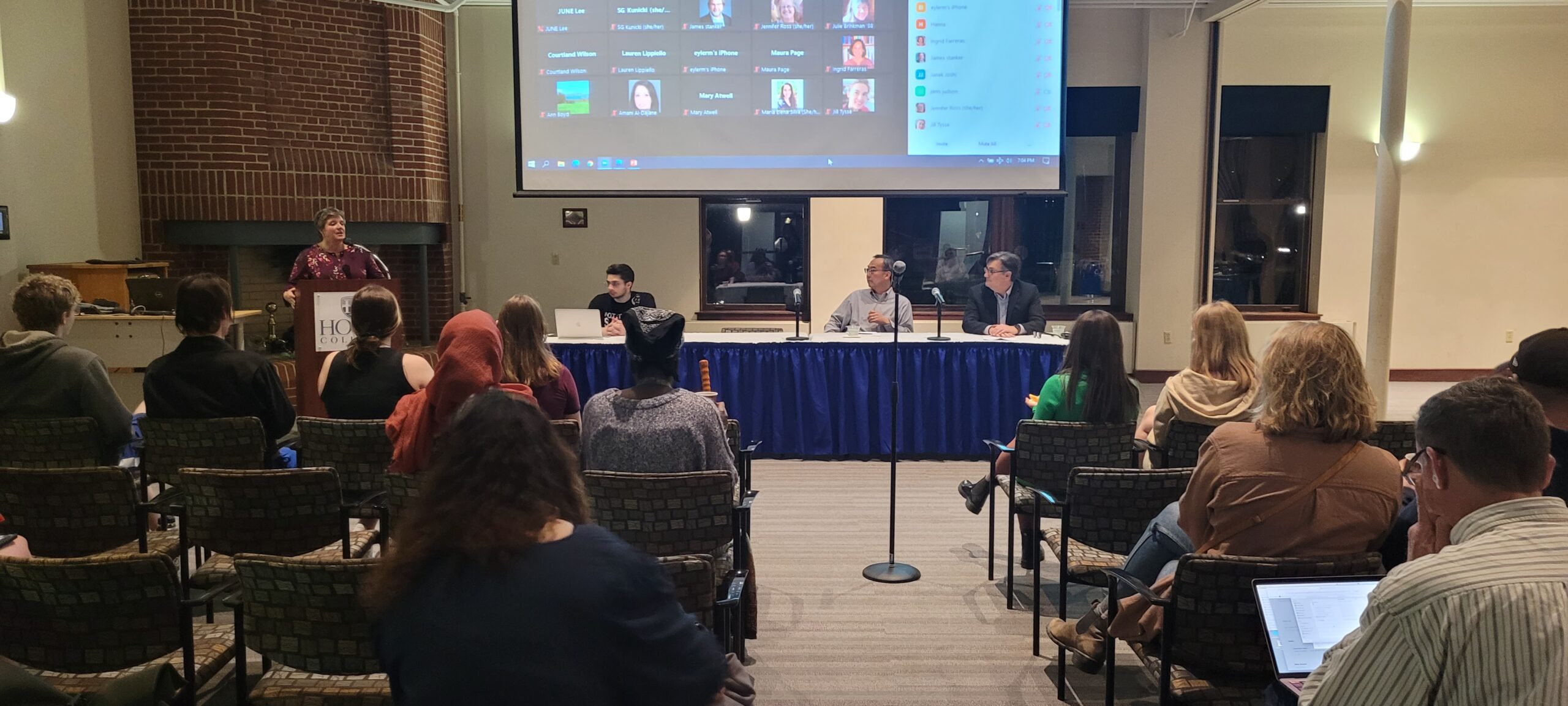
The war in Ukraine will not end quickly, a panel of Hood experts said Monday.
Hood faculty members and Ukrainian student Andrii Bezmen hosted a discussion to explain the recent Russian invasion of Ukraine and the crisis that has emerged with it.
Political science professor Paige Eager began the discussion with a brief historical context of the relationship between Ukraine and Russia.
Ukraine, which borders Russia, was forced to be a part of the Union of Soviet Socialist Republics (USSR) in 1922. After the collapse of the Soviet Union in 1991, many eastern European countries like Ukraine gained their independence.
Vladimir Putin, who was elected president of the Russian Federation in April of 2000, has repeatedly stated that the biggest mistake in the 20th century was the dismantling of the Soviet Union.
A number of countries close to Russia have joined the North Atlantic Treaty Organization (NATO) and many more, like Ukraine, have expressed interest in joining. NATO was formed with the purpose of protecting democratic freedom worldwide.
Putin has refused to use the term war, instead publicizing the invasion as a “special military operation” to remove the Nazi influence from Ukraine. He has even accused Jewish Ukrainian President Volodymyr Zelenskyy of Nazism and expressed concern about the potential for genocide.
“I have to say that as a historian, I think my inclination is that it might be a bit too early to assess the situation,” said associate professor Corey Campion, who specializes in European history.
Russia’s invasion of Ukraine reinforces previous concerns about imperialist aggression in Europe and the inability of international organizations like the United Nations Security Council to restrain aggressors, Campion said.
But the extent and swiftness of corporate involvement in the conflict is something that is new, he said. Companies like BP, Fed Ex, Visa and Ikea have stopped conducting business in Russia.
In addition to private companies pulling out of the country, international punishment has been substantial, imposing more than 5,000 economic sanctions, mostly targeting Russian oligarchs and the Central Bank of Russia.
With the combination of economic sanctions and corporate pullouts, the ruble is worth only half of its value before the invasion and is expected to continue declining as the war escalates.
Associate professor of economics and management Sang Kim said, “The oligarchs are hurting.”
The Russian oligarchy is composed of CEOS of the wealthiest private-owned businesses in Russia. The economic target of oligarchs’ personal finances could be the opportunity Ukraine needs to stop Putin, said Ryan Safner, an assistant professor of economics.
“The changes in regimes, government and government policies really are changes from the top,” Safner said. “That is among the elite rather than spontaneous demonstrations from the ground up.”
A member of the audience asked the panel if the people of Russia could help end the war.
Thousands are participating in demonstrations and protests, calling for an end to the war. However, local police in Russia are detaining and placing protestors in jail. Facebook and Twitter use is banned in Russia, and the last independent TV station in Russia closed this past week.
Bezmen said that he believes Russian citizens hold the power to affect the outcome of the war.
“People in the Ukraine are stopping tanks with their bare hands and Russians are afraid of being beat up in the street,” Bezmen said. “Well too bad, you got to go out and protest or otherwise as you said, nothing is going to happen.”
The conclusion among the panel hosts was that there is no end to this war in sight. Putin has the constitutional authority to hold power in Russia until 2036, because of his modification to the constitution in 2020.
Those interested in helping the humanitarian crisis in Ukraine can donate here or to the Red Cross here.

Be the first to comment